Due to stricter prudential regulations put in place in the country, the Indian banking industry is better poised to cope with the current global financial crisis
DUBAI: Due to stricter prudential regulations put in place in the country, the Indian banking industry is better poised to cope with the current global financial crisis, according to a leading Indian banker.
"The Indian banking sector is better placed to cope with the adverse consequences of the ongoing financial turmoil in the West," MD Mallya, global chairman and managing director of the public sector Bank of Baroda said here.
"First of all, our banking industry is subject to stricter prudential regulations with respect to capital and liquidity," he added.
He said this as keynote speaker at a seminar on 'The Global Financial Crisis - An Analysis', organised by the Institute of Chartered Accountants of India (ICAI), Dubai Chapter, and the Indian consulate Monday night.
Mallya said the Reserve Bank of India (RBI), while restricting the overnight unsecured market for funds to banks and primary dealers, has imposed limits on their borrowing and lending operations in the overnight inter-bank call money market.
"In order to encourage greater reliance on stable sources of funding, the RBI has imposed prudential limits on banks' purchased inter-bank liabilities and these limits are linked to their net worth," he said.
"In order to strengthen capital requirements, the credit conversions factors, risk weights and provisioning requirements for specific off-balance sheet items, including derivatives, have been reviewed in the last few years. Moreover, in India, complex structures like synthetic securitisation have not been permitted so far," Mallya added.
Reiterating that India's banking industry was quite healthy, he said: "As much as 34 percent of its deposits are in government securities and cash with the RBI. Its consumer loans to GDP ratio is just 10 percent, whereas this ratio is as high as 100 percent for the US."
The Indian banking sector's exposure to sub-prime mortgages in the West is also limited.
"The banking sector, through its overseas branches, has some exposure to distressed financial instruments and troubled financial institutions. But this exposure is part of the normal course of their business and is quite small relative to the size of their overall business," Mallya said.
According to him, what the Indian markets are witnessing today is an indirect, knock-on effect of the global financial situation.
"This is only a reflection of the uncertainty and anxiety in the global financial markets," he said, adding Indian policymakers have responded to these untoward circumstances swiftly.
"To re-establish orderly conditions in the money, equity and forex markets and to improve the overall liquidity in the system, the RBI has cut the cash reserve ratio (CRR) to 6.5 percent from the earlier nine percent in less than two weeks this month," Mallya said.
"To help mutual funds, as a temporary measure, the RBI has allowed banks to avail of additional liquidity support of up to 0.5 percent of their net demand and time deposits. This is in addition to the ad hoc reduction in the statutory liquidity ratio to 24 percent," he added.
The central bank, he said, has also allowed banks to raise interest rates on NRI deposits so that more money would flow to India.
"The policymakers have come out with a plan to raise the capital adequacy ratio of Indian banks to 12 percent by a suitable date in future. Even at present, no Indian bank has a capital adequacy of less than 10 percent. The limit on FII (foreign institutional investors) investment in corporate bonds has also been doubled," the banker said.
Overall, he said, the macro effects of the global financial turmoil on India would remain muted due to the strength of its domestic demand and reasonably healthy balance sheets of its corporate sector.
Earlier, welcoming the gathering, India's Consul General in Dubai Venu Rajamony said though the world was reeling under a financial crisis, there were several things for India to smile about.
"You have Sachin (Tendulkar) breaking a world record, a young writer like Aravind Adiga winning the Booker Prize and the countdown to India's moon mission has started. So, life goes on in India," he said.
![submenu-img]() Meet man, an Indian, whose family topped list of richest people in the UK with net worth of...
Meet man, an Indian, whose family topped list of richest people in the UK with net worth of...![submenu-img]() Pune: Tanker explodes in Pimpri Chinchwad, nearby hotels, houses and parked trucks damaged
Pune: Tanker explodes in Pimpri Chinchwad, nearby hotels, houses and parked trucks damaged![submenu-img]() Rohit Sharma lashes out at IPL TV broadcaster for 'breach of privacy'
Rohit Sharma lashes out at IPL TV broadcaster for 'breach of privacy'![submenu-img]() Heeramandi lyricist AM Turaz on Azadi: 'Women's contribution in Indian freedom movement has never been...' | Exclusive
Heeramandi lyricist AM Turaz on Azadi: 'Women's contribution in Indian freedom movement has never been...' | Exclusive![submenu-img]() Kangana Ranaut reveals if she will quit films after winning Lok Sabha elections, calls Bollywood 'jhoothi duniya'
Kangana Ranaut reveals if she will quit films after winning Lok Sabha elections, calls Bollywood 'jhoothi duniya'![submenu-img]() Meet IAS officer, daughter of milk vendor, who cracked UPSC in second attempt, secured AIR...
Meet IAS officer, daughter of milk vendor, who cracked UPSC in second attempt, secured AIR...![submenu-img]() UGC NET June 2024: Registration window closes today; check how to apply
UGC NET June 2024: Registration window closes today; check how to apply![submenu-img]() Meet IAS officer, son of teacher from Rajasthan, who cracked UPSC after multiple failed attempts, secured AIR...
Meet IAS officer, son of teacher from Rajasthan, who cracked UPSC after multiple failed attempts, secured AIR...![submenu-img]() Meet IIT graduates, three friends who were featured in Forbes 30 Under 30 Asia list, built AI startup, now…
Meet IIT graduates, three friends who were featured in Forbes 30 Under 30 Asia list, built AI startup, now…![submenu-img]() Meet woman who cracked UPSC in fourth attempt to become IAS officer, secured AIR...
Meet woman who cracked UPSC in fourth attempt to become IAS officer, secured AIR...![submenu-img]() DNA Verified: Is CAA an anti-Muslim law? Centre terms news report as 'misleading'
DNA Verified: Is CAA an anti-Muslim law? Centre terms news report as 'misleading'![submenu-img]() DNA Verified: Lok Sabha Elections 2024 to be held on April 19? Know truth behind viral message
DNA Verified: Lok Sabha Elections 2024 to be held on April 19? Know truth behind viral message![submenu-img]() DNA Verified: Modi govt giving students free laptops under 'One Student One Laptop' scheme? Know truth here
DNA Verified: Modi govt giving students free laptops under 'One Student One Laptop' scheme? Know truth here![submenu-img]() DNA Verified: Shah Rukh Khan denies reports of his role in release of India's naval officers from Qatar
DNA Verified: Shah Rukh Khan denies reports of his role in release of India's naval officers from Qatar![submenu-img]() DNA Verified: Is govt providing Rs 1.6 lakh benefit to girls under PM Ladli Laxmi Yojana? Know truth
DNA Verified: Is govt providing Rs 1.6 lakh benefit to girls under PM Ladli Laxmi Yojana? Know truth![submenu-img]() Kiara Advani attends Women In Cinema Gala in dramatic ensemble, netizens say 'who designs these hideous dresses'
Kiara Advani attends Women In Cinema Gala in dramatic ensemble, netizens say 'who designs these hideous dresses'![submenu-img]() Influencer Diipa Büller-Khosla looks 'drop dead gorgeous' in metallic structured dress at Cannes 2024
Influencer Diipa Büller-Khosla looks 'drop dead gorgeous' in metallic structured dress at Cannes 2024![submenu-img]() Kiara Advani stuns in Prabal Gurung thigh-high slit gown for her Cannes debut, poses by the French Riviera
Kiara Advani stuns in Prabal Gurung thigh-high slit gown for her Cannes debut, poses by the French Riviera![submenu-img]() Heeramandi star Taha Shah Badussha makes dashing debut at Cannes Film Festival, fans call him ‘international crush’
Heeramandi star Taha Shah Badussha makes dashing debut at Cannes Film Festival, fans call him ‘international crush’![submenu-img]() Streaming This Week: Madgaon Express, Zara Hatke Zara Bachke, Bridgerton season 3, latest OTT releases to binge-watch
Streaming This Week: Madgaon Express, Zara Hatke Zara Bachke, Bridgerton season 3, latest OTT releases to binge-watch![submenu-img]() Haryana Political Crisis: Will 3 independent MLAs support withdrawal impact the present Nayab Saini led-BJP government?
Haryana Political Crisis: Will 3 independent MLAs support withdrawal impact the present Nayab Saini led-BJP government?![submenu-img]() DNA Explainer: Why Harvey Weinstein's rape conviction was overturned, will beleaguered Hollywood mogul get out of jail?
DNA Explainer: Why Harvey Weinstein's rape conviction was overturned, will beleaguered Hollywood mogul get out of jail?![submenu-img]() What is inheritance tax?
What is inheritance tax?![submenu-img]() DNA Explainer: What is cloud seeding which is blamed for wreaking havoc in Dubai?
DNA Explainer: What is cloud seeding which is blamed for wreaking havoc in Dubai?![submenu-img]() DNA Explainer: What is Israel's Arrow-3 defence system used to intercept Iran's missile attack?
DNA Explainer: What is Israel's Arrow-3 defence system used to intercept Iran's missile attack?![submenu-img]() Heeramandi lyricist AM Turaz on Azadi: 'Women's contribution in Indian freedom movement has never been...' | Exclusive
Heeramandi lyricist AM Turaz on Azadi: 'Women's contribution in Indian freedom movement has never been...' | Exclusive![submenu-img]() Kangana Ranaut reveals if she will quit films after winning Lok Sabha elections, calls Bollywood 'jhoothi duniya'
Kangana Ranaut reveals if she will quit films after winning Lok Sabha elections, calls Bollywood 'jhoothi duniya'![submenu-img]() Sanjay Leela Bhansali calls this actor his only friend in industry: 'He doesn't care about my film, he cares about me'
Sanjay Leela Bhansali calls this actor his only friend in industry: 'He doesn't care about my film, he cares about me'![submenu-img]() Jolly LLB 3: Akshay Kumar wraps up first schedule; local artiste reveals actor's inspiring daily habits
Jolly LLB 3: Akshay Kumar wraps up first schedule; local artiste reveals actor's inspiring daily habits![submenu-img]() Before Ranveer Singh, Deepika Padukone; Bajirao Mastani was announced with these two superstars in 70s, it got shelved
Before Ranveer Singh, Deepika Padukone; Bajirao Mastani was announced with these two superstars in 70s, it got shelved![submenu-img]() Viral video: Donkey stuns internet with unexpected victory over hyena, watch
Viral video: Donkey stuns internet with unexpected victory over hyena, watch![submenu-img]() Viral video: 'Breathtaking' blue meteor illuminates skies over Spain and Portugal, watch
Viral video: 'Breathtaking' blue meteor illuminates skies over Spain and Portugal, watch![submenu-img]() Google CEO Sundar Pichai reveals his favourite foods in Delhi, Mumbai, Bengaluru and they are...
Google CEO Sundar Pichai reveals his favourite foods in Delhi, Mumbai, Bengaluru and they are...![submenu-img]() Cow fight injures two girls enjoying street snacks, video goes viral
Cow fight injures two girls enjoying street snacks, video goes viral![submenu-img]() Viral video: Man sets up makeshift hammock on bus, internet reacts
Viral video: Man sets up makeshift hammock on bus, internet reacts
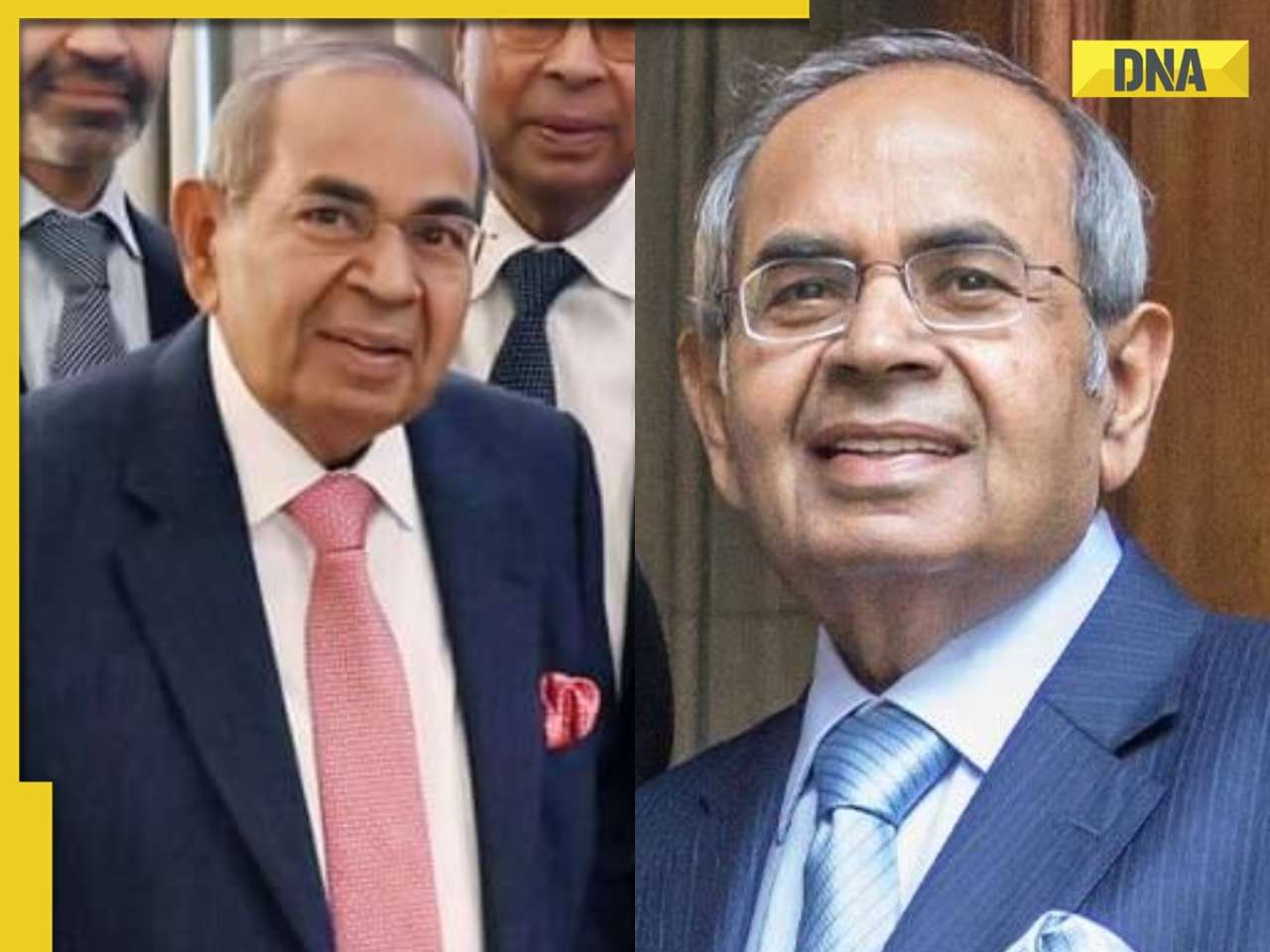










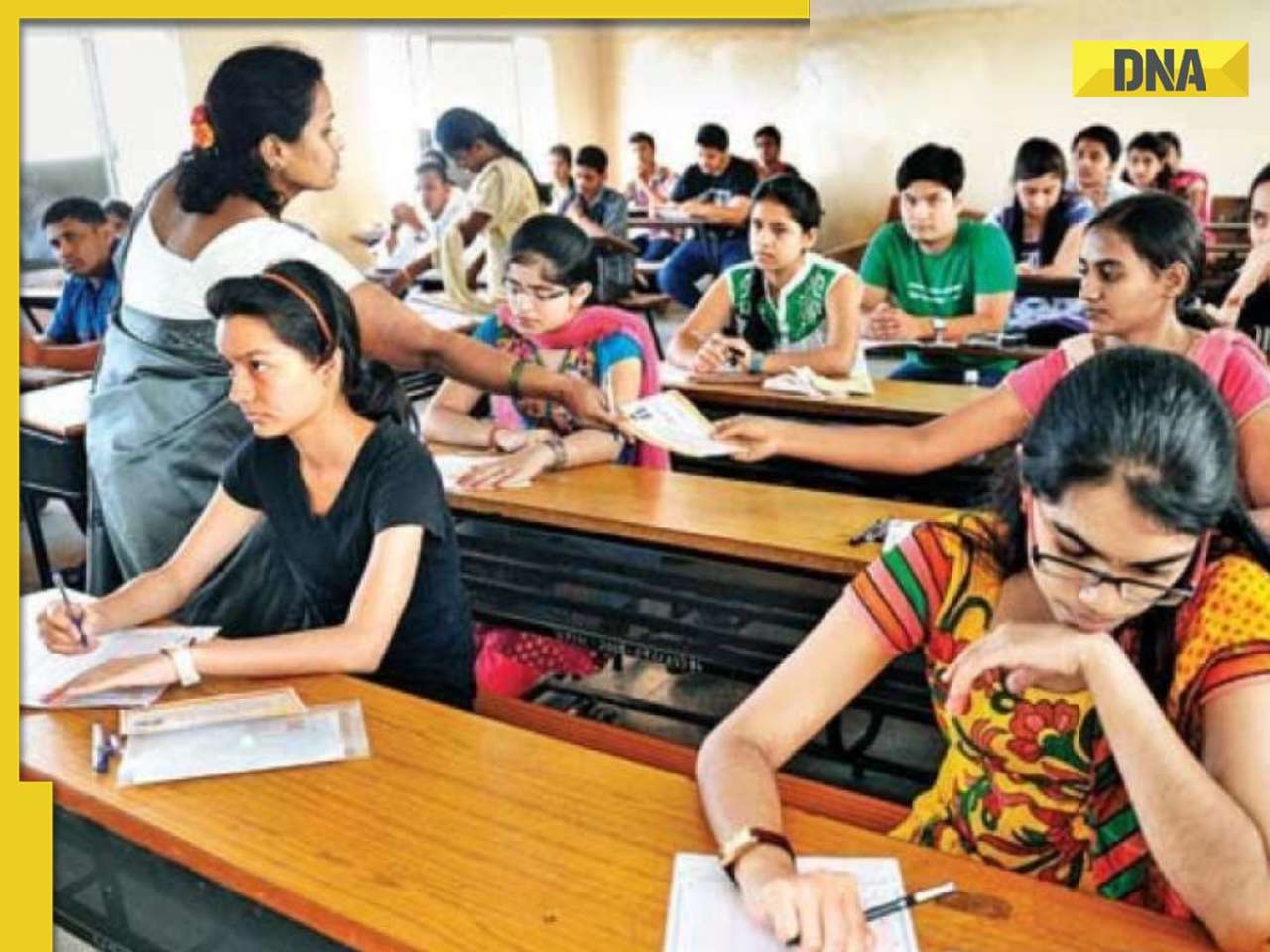
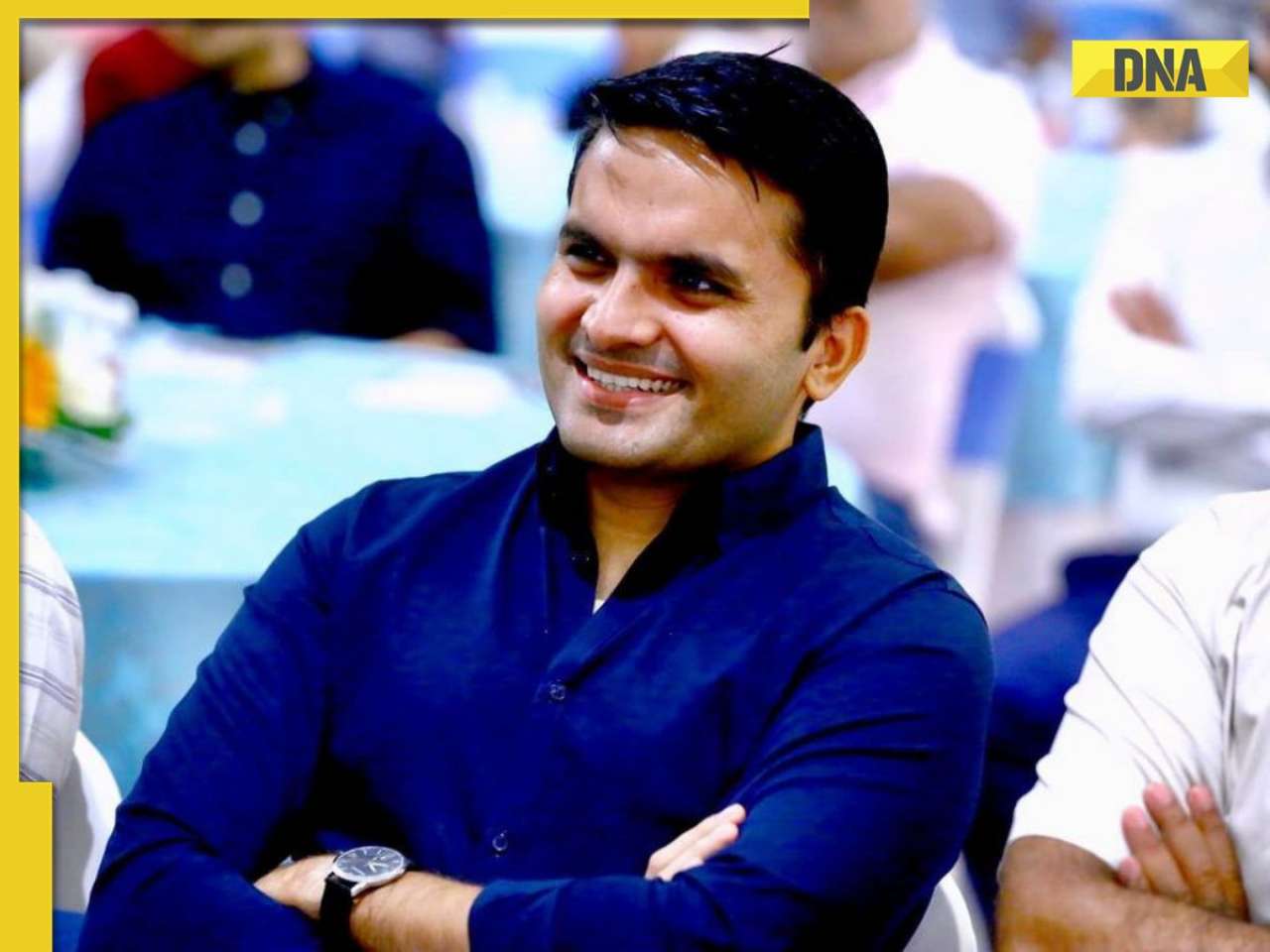

















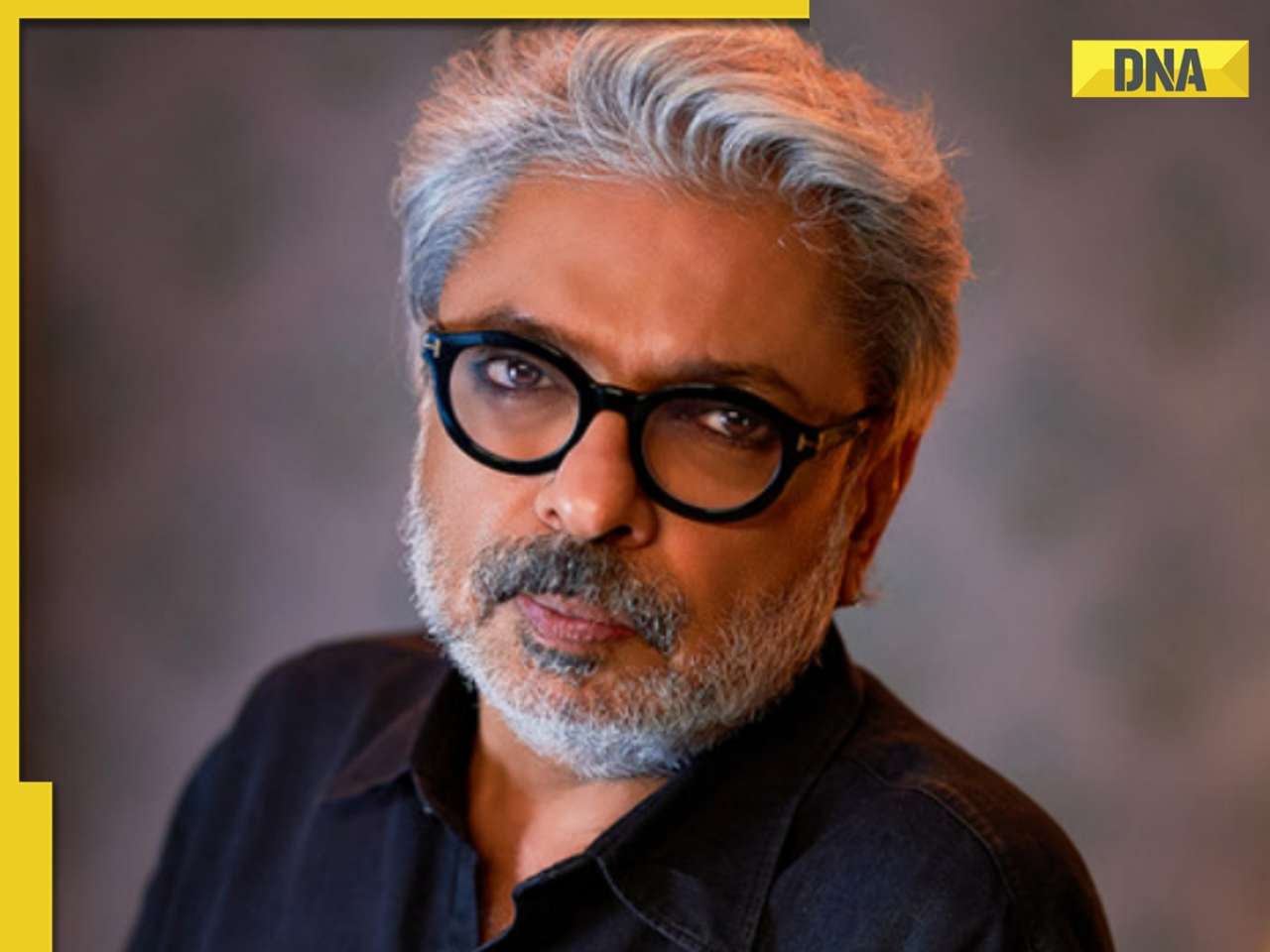




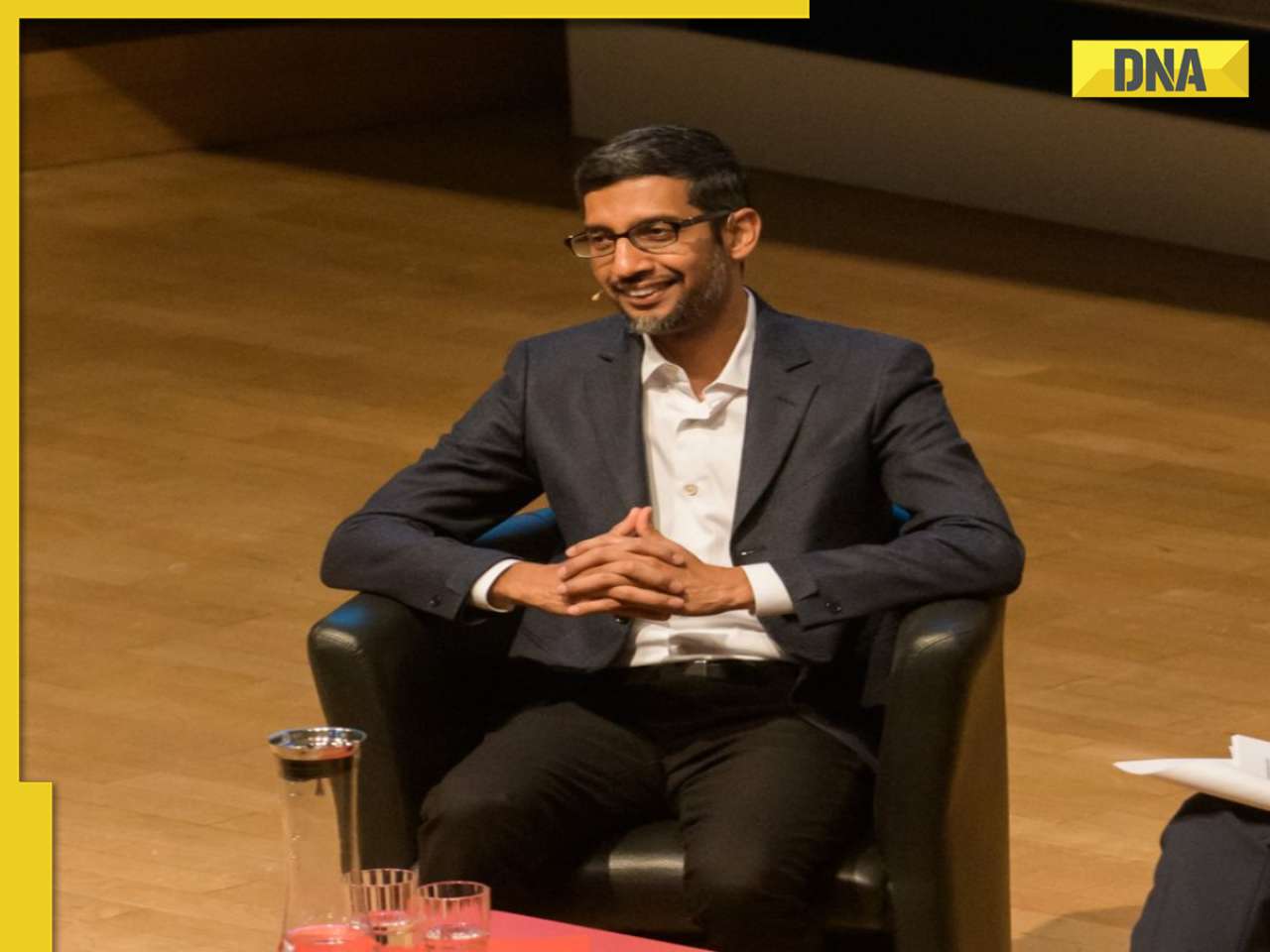






















)
)
)
)
)
)